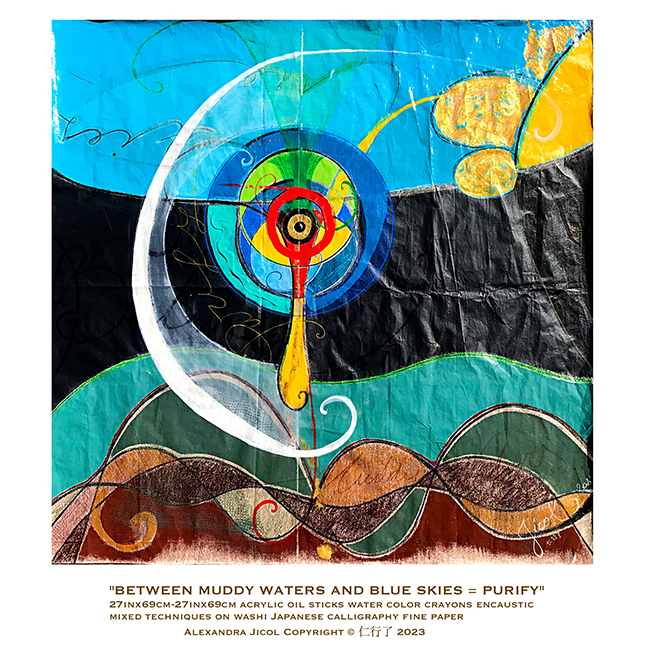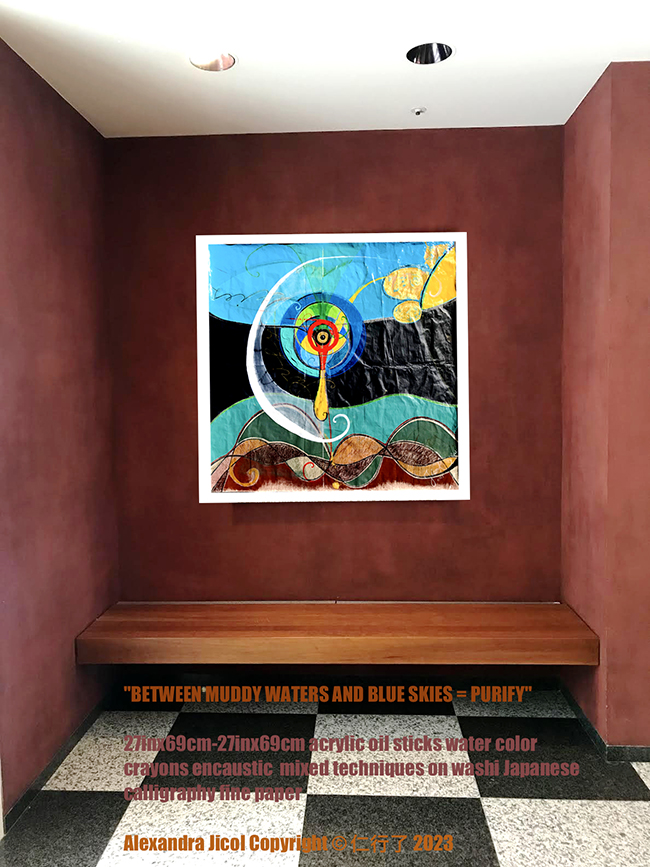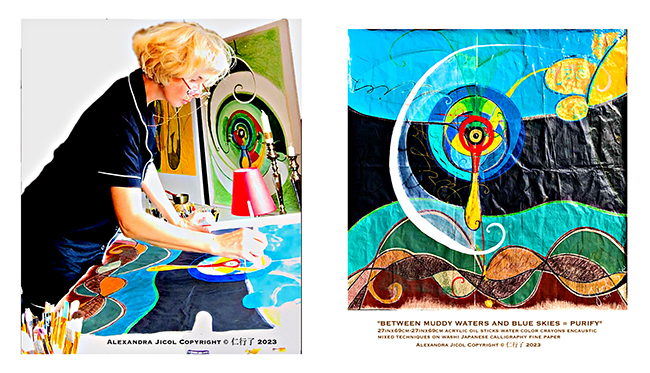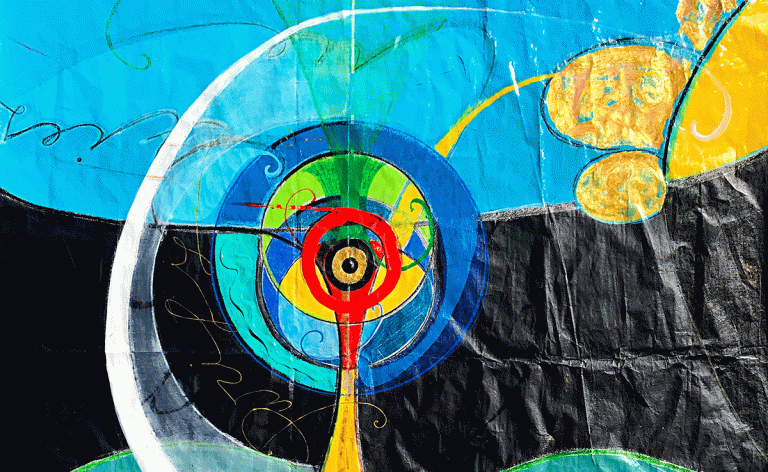Alexandra Jicol follows a path shaped by depth and introspection. Born in Bucharest during a time of political limits and social tension, she spent her early years between the quiet of the mountains and the stark rhythm of city life. That contrast—between openness and structure—continues to echo through her work, where emotion, memory, and landscape merge in quiet dialogue.
Her work is centered on emotional excavation. It’s not about decoration. It’s about peeling back the layers of experience. Each painting is a reflection of thought and feeling, caught in motion. Over time, Jicol has shaped a personal language built from color, form, and texture—simple tools, loaded with meaning. Her art isn’t about polish; it’s about presence. She’s not offering conclusions, but opening windows into what it means to be alive—conflicted, searching, and awake.

One piece that captures this tension clearly is Between Muddy Waters and Blue Skies = Purify. Painted on Japanese calligraphy paper mounted to wood, this slim work—27 by 69 centimeters—acts as both symbol and experience. Its vertical pull mimics ascent, struggle, and passage.
At the center hovers a single eye. It doesn’t stare out, it drifts. It’s caught between two realms: the thick, murky depths of struggle and the open quiet of possibility. The bottom is clouded and dark—a metaphor for hardship, for loss, for the weight we carry. Above it, a clear blue zone opens up like breath after panic. This isn’t a simple rise-and-fall story. The eye, like the soul, is paused in that in-between space where reflection lives.

Jicol uses a layered mix of acrylic, oil sticks, water crayons, and encaustic. These aren’t polite materials. They resist and mix unpredictably, but she uses that tension as part of the story. The wax seals parts of the surface like healed-over wounds—smooth, but marked. The paper beneath absorbs pigment unevenly, pulling some strokes deep while others stay on the skin. It’s fragile but firm once mounted—Jicol’s nod to resilience, maybe even survival.
A thin white line runs through the piece. In her visual world, this line is a guide. Sometimes it’s a boundary, other times a thread. Here, it acts like a shield, keeping the eye from sinking too far. There’s a suggestion of safety, of something held. And in the upper corner, she places a gold sun—subtle, warm, and steady. It’s done in encaustic, so it glows differently depending on the light. It’s not overpowering. It just waits.

That shifting visibility runs through the whole painting. Certain parts are bold. Others sit faintly under the surface, revealing themselves only when the light changes or the viewer shifts position. It’s a reminder that understanding doesn’t come all at once. You see what you’re ready to see. The rest waits for you to return.
Jicol’s work rarely gives answers. It’s more about offering a quiet place to sit with questions. What does it mean to be pulled in two directions? How do we protect what’s soft inside us while still facing the world? Is there ever real peace—or just moments of it?
The choice to use washi paper is key. There’s history in that material. It breathes. It drinks pigment. And when it’s backed by something strong, it holds. Just like her figures, her eyes, her symbols—it all speaks to the mix of vulnerability and backbone she threads through each painting.
Between Muddy Waters and Blue Skies = Purify doesn’t shout. It doesn’t flash. But it stays with you. It has weight, even when it whispers. That’s the kind of impact Alexandra Jicol aims for—not immediate noise, but something that lingers.
As seasons shift and the world resets itself yet again, her work reminds us that we all live in some version of this in-between space—caught between what hurts and what heals. And if we’re lucky, we find moments where we feel that pull upward, toward something just a little more clear.

